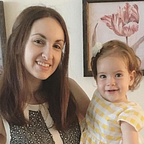Top 3 things to know when choosing an in-home daycare
When people think of daycare, they often imagine a large center with lots of classrooms, children and teachers. It turns out though, the majority of daycare businesses nationally operate out of the provider’s own home. These in-home daycares (sometimes also referred to as “family child care” or “home-based daycare”) are much smaller operations with just a handful of children and can be a great way to give your child an intimate, nurturing care environment with the socialization and cost savings that daycare provides. But just like any other child care arrangement, it’s really important to do your homework. If you’re considering an in-home daycare, these are the top three things to know that are absolutely critical for your child’s safety and well-being.
1. Listed does not equal licensed
If you’re considering an in-home daycare, remember that anyone can list a daycare on Yelp, Facebook, Craigslist or Google Maps. Even Care.com does not force you to list a license to advertise your business. Additionally, many of these websites also do little to moderate their content and verify the accuracy of the information on their site. Online resources can help paint a picture of a provider and their philosophy and style, but just remember that anyone can put anything online.
2. Always know the laws in your state
Each state has its own regulations that apply to in-home daycares. These guidelines generally cover:
- The group size, or maximum number of children allowed
- The adult-to-child ratio, or the minimum number of adults that should supervise a specific number of children based on their age
- Health standards such as immunizations, handwashing, diapering and giving medication
- Safety standards such as emergency preparedness, sleep procedures, outdoors/playground safety and reporting illnesses or accidents
- Food and nutrition protocols
- Fire and safety drills
- Education and training requirements
To know your state’s particular rules and regulations regarding in-home daycares, check out Childcare Aware of America. It’s really important to know the rules so you can determine if a potential daycare is violating those rules. You do not want to send your child to a daycare that is in violation of state rules, even if they haven’t be caught yet.
3. Always ask for the license number
If a provider won’t give you their license number that’s a huge red flag. A license number is not like a social security number — it is public information — so don’t let a provider bully you into thinking you shouldn’t be asking for it. Once you have the license number, you can learn about whether the license is active, whether any complaints have been filed, and whether it has been cited for any issues. At Winnie we have strict policies on license transparency for all providers on our platform, and we establish deep data integrations with local licensing authorities to allow us to verify this data in real time.
Not all daycare providers are required to be licensed. If a provider tells you they are exempt from licensure it should match up to your state laws you’ve researched above.
Winnie helps parents find daycare and preschool. With over 50,000 licensed daycares and preschools, you can easily compare photos, prices, parent reviews & more. For even more help with your child care search, check out Winnie Premium, the child care membership busy parents need. Join now for early notice of new openings, concierge support, and access to a deep network of quality caregivers.
